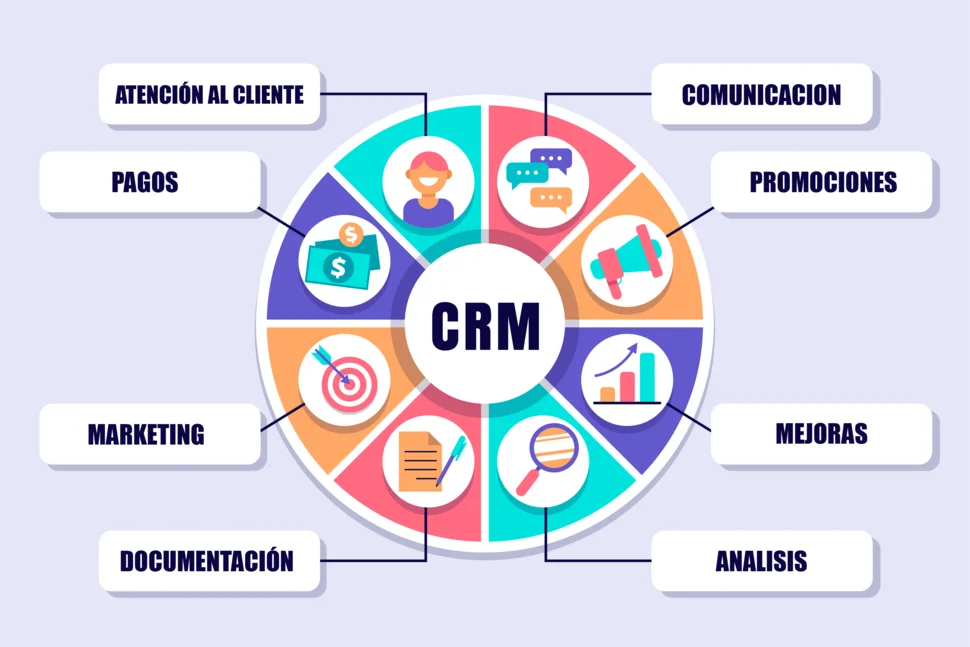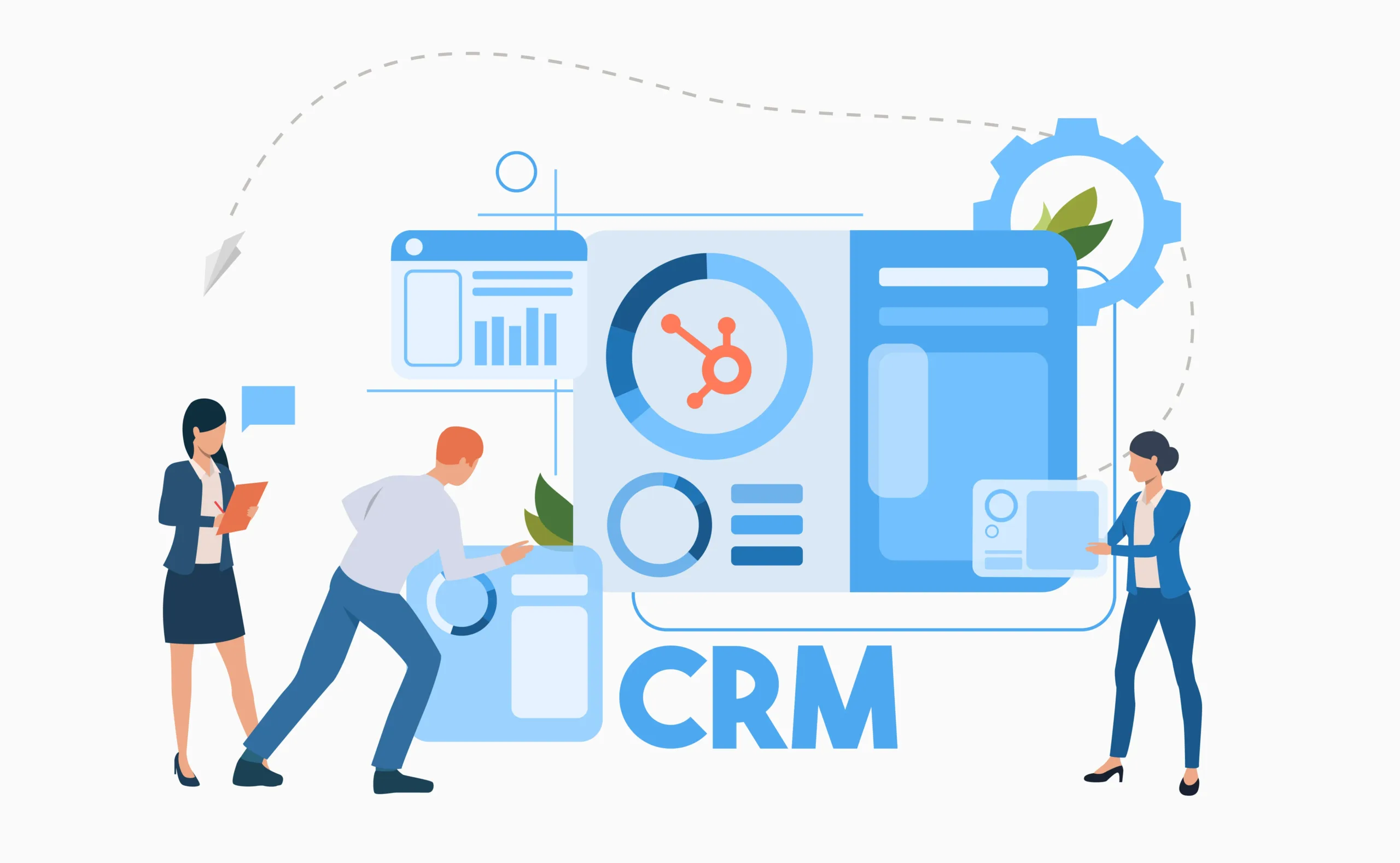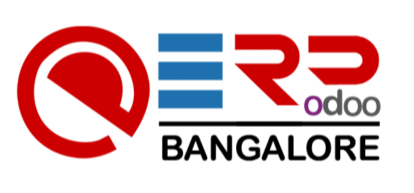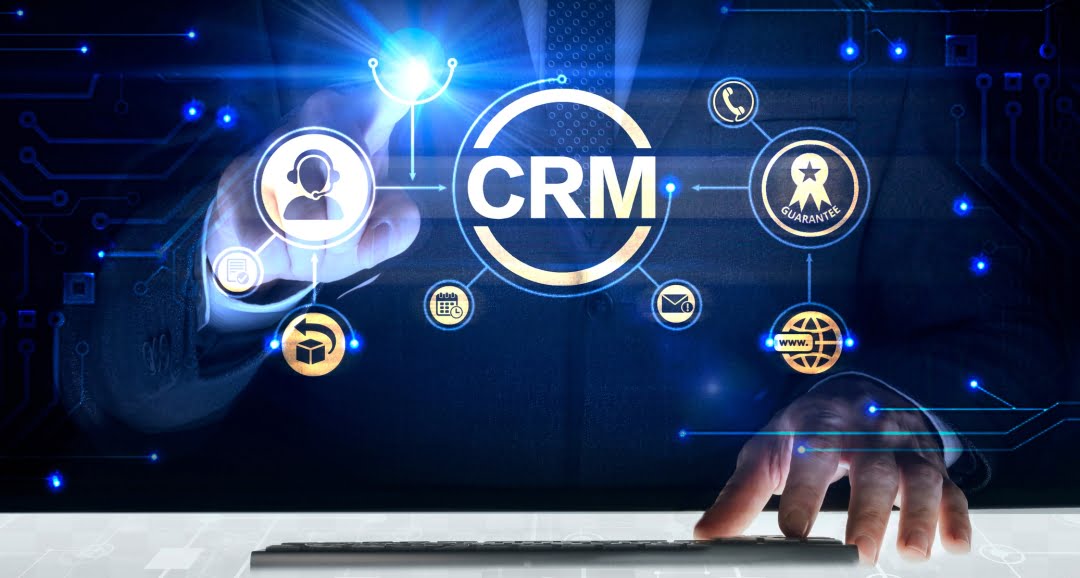Introduction to Google Calendar and CRM Integration
In today’s fast-paced business environment, optimizing time management and maintaining strong customer relationships are crucial for success. Fortunately, technology offers powerful tools to streamline these critical aspects. One such integration that can significantly enhance efficiency and productivity is the synchronization of Google Calendar with a CRM (Customer Relationship Management) system.
Significance of Synchronizing Google Calendar with CRM:

Merging the functionalities of Google Calendar and a CRM platform offers several compelling benefits:
- Enhanced Workflow Efficiency: By eliminating the need to manually switch between platforms, this integration streamlines workflows and minimizes data entry duplication, saving valuable time and reducing the risk of human error.
- Improved Time Management: Schedule management becomes more efficient as appointments, meetings, and deadlines from both the CRM and Google Calendar are displayed in a single, unified view. This allows for better time allocation and reduced scheduling conflicts.
- Elevated Customer Service: A synchronized calendar allows for easier scheduling of client meetings, calls, and follow-ups. Additionally, access to relevant customer information within the CRM during meetings facilitates more personalized and insightful interactions.
- Improved Team Collaboration: Integration enables seamless sharing of schedules and client information within teams, fostering better collaboration and ensuring everyone stays on the same page.
By leveraging the combined strengths of Google Calendar and a CRM, businesses can boost their overall productivity, strengthen customer relationships, and achieve their strategic objectives more effectively.
The Evolution of Calendar-CRM Integration:

The integration of calendars and CRM platforms has evolved significantly over the years, reflecting advancements in technology and user needs:
- Early Integrations: Initial solutions relied on manual data entry and limited synchronization capabilities. This often resulted in data inconsistencies and inefficiencies.
- API-based Integrations: The introduction of Application Programming Interfaces (APIs) allowed for more seamless and automated data exchange between platforms, reducing manual effort and improving accuracy.
- Cloud-based Solutions: The rise of cloud-based CRM systems further facilitated integration with Google Calendar, fostering increased accessibility and scalability for businesses of all sizes.
- Future Advancements: Looking ahead, expect to see further integration advancements, such as real-time data synchronization, artificial intelligence-powered scheduling, and enhanced data visualization for deeper insights.
As technology continues to evolve, calendar-CRM integration is poised to become even more sophisticated and user-friendly, offering enhanced functionalities and valuable data-driven insights for businesses seeking to gain a competitive edge.
Real-world Applications and Success Stories:
Numerous organizations across various industries have successfully leveraged Google Calendar and CRM integration to achieve impressive results:
- Sales teams: By having access to client schedules within their CRM, salespeople can schedule meetings and follow-ups efficiently, leading to increased sales opportunities and improved conversion rates.
- Customer service teams: Integration allows for faster response times to customer inquiries by enabling easy access to relevant client information and scheduling details during interactions.
- Project management teams: Project deadlines and team member schedules can be viewed in a single platform, facilitating better project coordination and improved task completion rates.
These success stories highlight the tangible benefits of integrating Google Calendar with CRM systems. By streamlining workflows, enhancing collaboration, and fostering stronger customer relationships, this powerful combination empowers businesses to operate more efficiently and achieve their goals with greater success.
Setting Up Google Calendar and CRM Integration: A Roadmap to Seamless

Ready to unlock the efficiency and productivity benefits of Google Calendar and CRM integration? This guide equips you with the knowledge and steps to achieve a seamless synchronization:
Choosing Compatible CRM Platforms:
Before diving into the integration process, ensure you have a CRM platform compatible with Google Calendar. Here’s what to consider:
- Native Integration: Many popular CRM platforms offer built-in integration capabilities with Google Calendar. Look for options that advertise direct synchronization or mention Google Calendar in their list of supported integrations.
- Third-party Integration Tools: If your preferred CRM doesn’t offer native integration, consider using third-party integration tools. These tools can act as intermediaries, facilitating data exchange between platforms. Conduct thorough research to ensure the chosen tool is reliable and secure.
- API-based Integration: For advanced users or organizations with specific needs, consider exploring API (Application Programming Interface) -based integration. This method requires technical expertise to establish a direct connection between the platforms, offering greater flexibility and customization options.
Step-by-Step Integration Process:
Once you’ve chosen your integration method, follow these general steps to establish the connection:
- Access Your CRM Settings: Locate the settings or administration section within your CRM platform. Look for options related to integrations or add-ons.
- Find Google Calendar Integration: Navigate to the integrations or add-ons section and search for “Google Calendar” or a similar option.
- Initiate the Integration: Click on the “Connect” or “Install” button for the Google Calendar integration. This might involve granting necessary permissions and following platform-specific instructions.
- Configure Synchronization Settings: Choose the specific data points you want to synchronize between your CRM and Google Calendar. This might include appointments, contacts, tasks, or other relevant information.
- Test and Verify: Once configured, test the synchronization by creating a new event in one platform and observing its automatic appearance in the other. Ensure all data transfers seamlessly.
Troubleshooting and Best Practices:
While the integration process is generally straightforward, occasional hiccups might occur. Here are some common issues and solutions:
- Synchronization Errors: If events aren’t syncing properly, double-check your configuration settings and ensure both platforms have stable internet connections. Restarting both platforms can sometimes resolve temporary glitches.
- Data Discrepancies: If data appears differently between platforms, verify that you’ve mapped the corresponding fields correctly during the integration setup. Consider manually updating any discrepancies to ensure consistency.
- Limited Functionality: If you encounter limitations in your chosen integration method, explore upgrading to a paid plan offered by the CRM or third-party tool, which might unlock additional functionalities.
Here are some best practices to maintain a smooth integration:
- Regularly review and update your synchronization settings: As your business needs evolve, you might need to adjust the data points being synced or modify user access permissions.
- Educate your team: Provide clear guidelines and instructions to your team members on how to use the integrated system effectively. This minimizes confusion and ensures everyone leverages the benefits of the integration.
- Monitor and maintain data quality: Regularly review data accuracy in both platforms to identify and address any inconsistencies that might arise.
By following these steps and best practices, you can effectively set up and maintain a seamless integration between your Google Calendar and CRM, unlocking a world of enhanced productivity, improved collaboration, and stronger customer relationships for your organization.
Benefits of Google Calendar and CRM Synchronization: Unlocking Synergies for Optimized Operations
The synergy between Google Calendar and CRM synchronization transcends convenience, offering a multitude of tangible benefits that empower businesses to operate more efficiently and effectively. Let’s delve into the key advantages this integration unlocks:
Enhanced Task and Appointment Management:
- Unified Calendar View: Gain a comprehensive overview of your schedule by viewing all appointments, tasks, and deadlines from both your CRM and Google Calendar in a single, centralized platform. This eliminates the need to switch between different applications, saving valuable time and reducing the risk of missed deadlines or conflicts.
- Streamlined Task Scheduling: Easily schedule tasks related to specific clients or projects within your CRM, and have them automatically appear on your Google Calendar. This ensures clear visibility into your workload and allows for optimized time allocation based on priorities and deadlines.
- Improved Appointment Tracking: Track and manage all client meetings, calls, and follow-ups directly within your CRM. This eliminates the need for manual record-keeping and ensures that important appointments are never missed. Additionally, integration allows for easy access to relevant client information during meetings, facilitating more productive and personalized interactions.
By centralizing your schedule and tasks, Google Calendar and CRM integration empowers you to manage your time effectively, meet deadlines consistently, and stay organized in today’s fast-paced business environment.
Improved Customer Relationship Management:
- Personalized Customer Interactions: Access to complete client history and activity data within your CRM during meetings allows for more personalized and insightful interactions. This fosters stronger relationships, builds trust, and ultimately leads to improved customer satisfaction and loyalty.
- Enhanced Sales and Follow-up Processes: Schedule automated follow-up tasks within your CRM based on specific triggers like email opens, website visits, or proposal submissions. This ensures timely follow-up with potential customers, maximizing sales opportunities and increasing conversion rates.
- Improved Account Management: Gain a holistic view of all interactions and touchpoints with each customer, fostering a deeper understanding of their needs and preferences. This empowers your team to proactively address customer concerns, offer targeted solutions, and ultimately strengthen long-term customer relationships.
By integrating Google Calendar with your CRM, you equip your team with the tools and information necessary to build stronger customer relationships, leading to increased sales, improved customer retention, and enhanced brand reputation.
Streamlined Team Collaboration:
- Real-time Visibility: Ensure your entire team has real-time access to updated schedules and client information. This eliminates the need for constant communication and clarification, reducing misunderstandings and inefficiencies.
- Improved Resource Allocation: Easily identify team member availability by viewing their schedules within the integrated platform. This allows for effective resource allocation and efficient scheduling of meetings and tasks, ensuring that the right people are assigned to the right projects at the right time.
- Enhanced Communication and Coordination: Foster seamless communication and collaboration within your team by having a centralized platform to share schedules, discuss client interactions, and track progress on projects. This fosters a more cohesive and productive work environment.
By breaking down communication barriers and promoting real-time information sharing, Google Calendar and CRM integration empowers your team to collaborate effectively, optimize workflows, and achieve shared goals with greater efficiency.
In conclusion, synchronizing Google Calendar with your CRM platform is not just a convenience; it’s a strategic investment that unlocks a multitude of benefits. From enhanced task and appointment management to improved customer relationship management and streamlined team collaboration, this powerful integration empowers businesses to operate more efficiently, build stronger relationships, and ultimately achieve greater success.
Overcoming Challenges in Google Calendar and CRM Integration: Building a Seamless Bridge
While Google Calendar and CRM integration offers remarkable benefits, navigating the process is not without its challenges. Here are some key obstacles to consider and strategies to overcome them:
Data Security and Privacy Concerns:
When integrating two platforms, the security and privacy of your data become paramount. Here’s how to address these concerns:
- Choose Reputable Vendors: Select CRM platforms and integration tools that prioritize robust security measures, transparent privacy policies, and compliance with relevant data protection regulations.
- Implement Strong Authentication Protocols: Enforce multi-factor authentication and strong password policies for all user accounts to minimize unauthorized access to sensitive information.
- Control User Permissions: Grant users access only to the data they need to perform their roles effectively. This minimizes the risk of data breaches and ensures compliance with data privacy regulations.
By prioritizing security and implementing appropriate measures, you can confidently leverage the integration while safeguarding your most valuable asset – your data.
Ensuring Data Accuracy and Consistency:
Maintaining accurate and consistent data across synced platforms is crucial for optimal functionality. Here’s how to ensure data integrity:
- Regular Data Quality Checks: Conduct frequent reviews of both platforms to identify and rectify any discrepancies in data points. This could involve manual checks or automated data cleansing processes.
- Standardize Data Entry Procedures: Establish clear data entry guidelines for your team to ensure consistent formatting and terminology across both platforms. This minimizes the risk of errors and inconsistencies.
- Utilize Data Validation Tools: Leverage built-in data validation features or implement custom validation rules to prevent the entry of inaccurate or invalid data into either platform.
By prioritizing data quality and implementing these practices, you can ensure that your CRM and Google Calendar reflect the most up-to-date and reliable information, leading to better decision-making and improved productivity.
Integration with Third-party Apps and Tools:
While Google Calendar and CRM integration offers substantial benefits, some businesses might require additional functionalities beyond the core capabilities. Here’s how to approach third-party integrations:
- Thorough Research and Evaluation: Conduct thorough research and evaluation before integrating any third-party tools. Assess the tool’s compatibility, security features, and user experience before making a decision.
- Understand Integration Complexity: Be aware that integrating additional tools might increase complexity and require technical expertise for setup and maintenance.
- Prioritize User Adoption: Ensure that all new tools are user-friendly and integrate seamlessly with existing workflows to avoid user resistance and maximize adoption within your team.
By carefully considering these factors, you can leverage the power of third-party integrations to extend the functionality of your CRM and Google Calendar while maintaining an efficient and user-friendly system for your team.
In conclusion, while challenges exist, proactive planning and careful consideration can help you overcome them. By prioritizing data security, ensuring data accuracy, and strategically integrating with third-party tools, you can unlock the full potential of Google Calendar and CRM integration, empowering your business to operate more efficiently, collaborate effectively, and achieve continued success.
Tips for Effective Google Calendar and CRM Synchronization: Maximizing the Integration’s Potential
While the benefits of Google Calendar and CRM integration are undeniable, achieving optimal results requires going beyond the basic setup. Here are some valuable tips to help you maximize the effectiveness of your synchronized system:
Customizing Calendar Views and Fields:
- Tailor Calendar Views: Utilize the customizable views offered by your CRM and Google Calendar to display the information that is most relevant to your team and workflows. This could involve filtering events by specific criteria or displaying additional data points alongside appointments.
- Synchronize Relevant Fields: Choose the specific data points you want to sync between platforms based on your needs. Some platforms allow selective field synchronization, allowing you to focus on the most crucial information.
- Leverage Color-Coding and Labels: Implement color-coding or label systems to categorize appointments and events based on different criteria like client types, project stages, or priority levels. This enhances visual clarity and facilitates easier scheduling and task management.
By customizing the integration to your specific needs, you can create a more intuitive and user-friendly experience, ultimately saving time and boosting team productivity.
Implementing Automation for Time-Saving:
Many CRM platforms and Google Calendar offer built-in automation features that can significantly streamline your workflows and save valuable time. Here are some examples:
- Automated Event Creation: Set up rules to automatically create calendar events based on specific triggers in your CRM, such as new lead creation, proposal submission, or upcoming service appointments.
- Automated Reminders and Notifications: Utilize automated reminders and notifications to ensure your team never misses important deadlines, meetings, or follow-up tasks.
- Automated Data Syncing: Leverage real-time data synchronization features to ensure all updates made in one platform are automatically reflected in the other, eliminating the need for manual data entry and reducing the risk of inconsistencies.
By embracing automation wherever possible, you can free up valuable time and resources for your team to focus on more strategic tasks and build stronger customer relationships.
Regular System Audits and Updates:
Just like any other system, regular maintenance and upkeep are crucial for the smooth operation of your integrated environment. Here are some practices to consider:
- Conduct System Audits: Schedule periodic audits to review your data accuracy, integration settings, user permissions, and overall system health. This proactive approach helps identify and address potential issues before they escalate into bigger problems.
- Stay Updated on Platforms: Ensure you are using the latest versions of both your CRM platform and Google Calendar. Updates often include bug fixes, security enhancements, and new features that can further improve the integration’s functionality and user experience.
- Monitor Integration Performance: Continuously monitor the performance of your integration. Look for any signs of slowdowns, errors, or inconsistencies in data synchronization. Addressing these issues promptly ensures optimal system performance.
By implementing regular system audits and updates, you can maintain the integrity, efficiency, and security of your integrated environment, allowing your team to reap the full benefits of Google Calendar and CRM synchronization.
In conclusion, effective Google Calendar and CRM integration is not just a one-time setup process; it requires ongoing customization, automation, and maintenance. By following these tips and strategically approaching your integration, you can create a seamless and optimized system that empowers your team to work smarter, collaborate effectively, and achieve greater success.
Future Trends in Google Calendar and CRM Integration: A Glimpse into a More Optimized Future
The landscape of Google Calendar and CRM integration is constantly evolving, driven by advancements in technology and changing user needs. Here’s a glimpse into some exciting trends that are poised to shape the future of this powerful combination:
AI and Predictive Analytics Integration:
- Smarter Scheduling: Imagine AI-powered scheduling assistants that learn your preferences and automatically schedule appointments based on factors like availability, location, and travel time. This could significantly reduce scheduling conflicts and optimize your time management.
- Predictive Insights: Expect to see CRM platforms integrated with advanced analytics tools that leverage AI to analyze historical data and predict future trends. This could provide valuable insights into customer behavior, allowing for proactive outreach, personalized communication, and improved sales forecasting.
By incorporating AI and predictive analytics, future integrations aim to automate mundane tasks, optimize scheduling processes, and provide data-driven insights, empowering businesses to make informed decisions and achieve their goals with greater efficiency and effectiveness.
Enhanced Mobile Integration:
- Seamless Mobile Experience: As mobile usage continues to rise, expect to see even smoother mobile integration between Google Calendar and CRM platforms. This will enable users to access and manage their schedules, tasks, and customer information seamlessly on the go, fostering greater flexibility and productivity.
- Offline Functionality: The future might hold offline functionalities within the integrated mobile application. This would allow users to view schedules, access customer data, and make basic updates even when they lack an internet connection, ensuring uninterrupted productivity in any situation.
By prioritizing mobile accessibility and functionality, future integrations aim to cater to the increasingly mobile workforce and empower users to work efficiently and effectively from any location.
In conclusion, the future of Google Calendar and CRM integration promises exciting advancements powered by AI, predictive analytics, and enhanced mobile capabilities. These advancements will transform the way businesses manage their schedules, customer interactions, and overall workflow, paving the way for a more optimized, data-driven, and mobile-centric work environment.
Conclusion
Synchronizing Google Calendar with CRM proves to be a game-changer for businesses seeking seamless collaboration and enhanced productivity. This integration offers a holistic approach to managing appointments, tasks, and client interactions, fostering better communication and organization within teams. As organizations navigate the demands of modern business, the synergy between Google Calendar and CRM systems becomes a cornerstone for efficient time management, improved customer relationships, and streamlined workflows.
By leveraging the power of automation and real-time data synchronization, businesses can ensure that their teams stay on top of deadlines, meetings, and client engagements. The enriched insights provided by this integration empower decision-makers to make informed choices, optimize resource allocation, and enhance overall operational efficiency.
However, successful implementation requires a strategic approach, from choosing the right tools and ensuring seamless integration to providing comprehensive training for the team. Overcoming challenges related to data security and system compatibility is crucial, emphasizing the importance of selecting reputable CRM solutions and employing robust cybersecurity measures.
As businesses embrace the collaborative potential of Google Calendar and CRM integration, they unlock new possibilities for growth, client satisfaction, and team synergy. The journey to mastering collaboration through this integration involves continuous improvement, feedback loops, and adapting to evolving business needs. By prioritizing effective collaboration, organizations position themselves at the forefront of innovation, poised for success in an increasingly interconnected and competitive business landscape.








